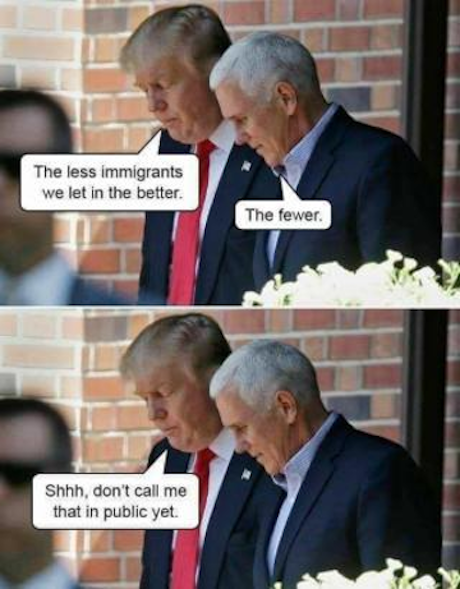In a number of posts about Donald Trump's rhetorical style, I've noted how seldom he uses filled pauses such as UM and UH in spontaneous speech, compared to other public figures. For example, in "The narrow end of the funnel" (8/18/2016), I noted that filled pauses were 8.2% of Steve Bannon's words (in a sample passage from a panel discussion on The Future of Conservatism), and 4.0% of Hilary Clinton's words in a Vox interview, while three of Trump's unscripted rally speeches had between 0% and 0.05% filled pauses, and in a CNBC interview, Trump used 74 filled pauses in 5329 words, for a rate of 1.4%.
Like many others, I've noted how often Trump abandons a discourse thread in mid-phrase, sometimes returning to it after a digression, and sometimes just forging ahead with new themes. (See e.g. "The em-dash candidate" (8/15/2016) and "Disfluencies and smiles" (9/30/2016).) And I've certainly also noted his fondness for phrasal repetitions, sometimes literal and sometimes transformed or paraphrased, which is one of the factors leading to his low rate of vocabulary display. (See "Donald Trump's repetitive rhetoric" (12/5/2015), "Trump's rhetorical style" (12/26/2015), "Vocabulary display in the CNN debate" (9/18/2015), "Political vocabulary display" (9/10/2015), and "More political text analytics" (4/15/2016).)
But I don't believe that I've noted, at least quantitatively, how rarely Donald Trump exhibits the type of disfluency where the leading edge of a phrase is rapidly repeated, sometimes to correct a pronunciation or inflection, and sometimes just as an apparent hitch in the speech production process. Nor do I think I've noted how little dead air (AKA pause for thought) there is in his spontaneous speech.
Read the rest of this entry »

